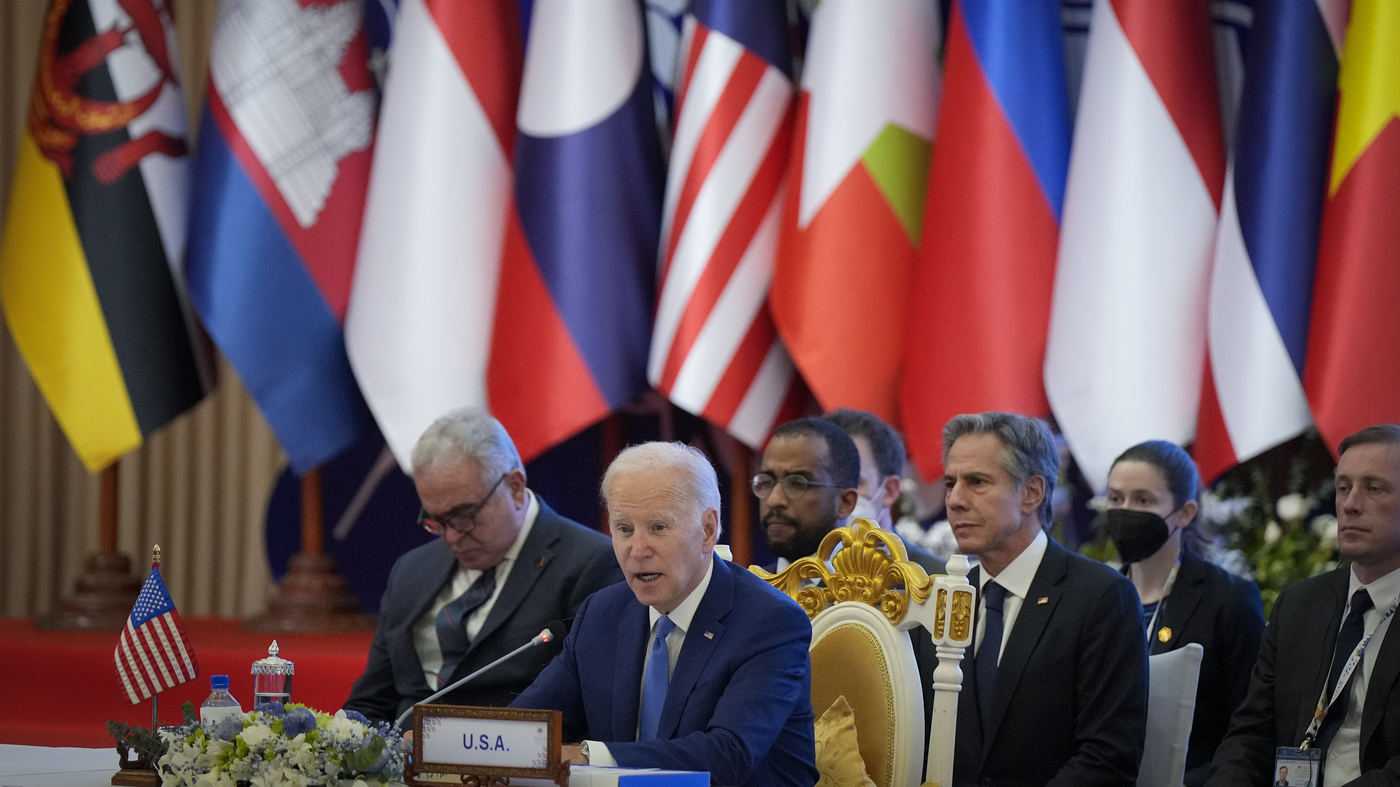The United States of America’s Most Subsequent Challenge: Counteracting China and Russia in the Era of the G20 Summit
President Joe Biden said in his first formal national security strategy that China is America’s most consequential challenge and stressed how important it is for alliances to be rebuilt in order to effectively compete.
The document, required by Congress, comes 21 months into Biden’s term. The President focused on rebuilding global partnerships in his tenure, as well as counteracting China and Russia.
Jake Sullivan, the vice president’s national security adviser, said the strategy made it clear that the White House wasn’t viewing the world through the lens of strategic competition.
He stated that the future of the country will not be left vulnerable to the wishes of those who do not share the same vision for a free, open, prosperous, and secure world. The United States of America is positioned to lead with strength and purpose as the world grapples with the effects of the pandemic and global economic uncertainty.
The document shows that Russia poses an immediate danger to the free and open international order as a result of it’s recent war of aggression against Ukraine. China’s intent is to change the international order and its economic, military, diplomatic, and technological power are more powerful than any other competitor.
If we don’t have enough time this decade, we will not be able to keep pace with the People’s Republic of China.
Biden said he looked forward to continued work with the Association of Southeast Asian Nations and its member states to find innovative solutions to shared challenges, such as climate and health security.
The East Asia summit sessions will include a three-way meeting with the leaders of South Korea and Japan, before Biden leaves for the G-20 summit in Indonesia.
Southeast Asia’s Prime Minister, Prime Minister Hun Sen, and a Co-sponsored Summit on Southeast Asia, focusing on maritime safety and maritime freedoms
Freedom of navigation refers to a dispute involving the South China Sea, where the United States says it can sail and fly wherever international law allows and China believes such missions are destabilizing. Sullivan said that the US had a key role to play in stabilizing the region, and that it was important to prevent nations of the region from engaging in violent behavior.
“There’s a real demand signal for that,” Sullivan told reporters aboard Air Force One on Saturday. Referring to the People’s Republic of China, Sullivan continued: “I think the PRC may not love that fact, but they certainly acknowledge it and understand it.”
One new initiative related to those efforts that Biden will discuss Saturday focuses on maritime awareness, specifically using radio frequencies from commercial satellites to better track dark shipping and illegal fishing, Sullivan said.
Although symbolic, the elevation of the U.S. to a “comprehensive strategic partnership” by the Association of Southeast Asian Nations is a move that puts Washington on a par with China last year.
The prime minister of Cambodia, Hun Sen, met with Biden on the first day of the regional summit. He also participated in the traditional family photo with southeast Asian leaders — one that required a re-do as the gregarious Biden was too busy shaking hands with other heads of state — and later, will attend a gala dinner hosted by a parallel summit in Cambodia focusing on east Asia.
There is a topic in which Biden focused on that saw the military junta overthrew the government in February of 2021 and then arrest the elected leader. As he met with Hun Sen, Biden stressed that the U.S. was committed to the return of democracy in Myanmar, which had steadily headed toward a democratic form of governance before the coup.
Biden, according to the White House, also pushed Hun Sen to release activists including Theary Seng, a Cambodian-American lawyer who was convicted of treason as the prime minister’s long-running rule aimed to crack down on his opposition. The White House said that Biden raised concerns about activities at Ream Naval Base, which Cambodian officials say is a collaborative effort between it and China.
Source: https://www.npr.org/2022/11/12/1136268069/biden-southeast-asia-asean
Biden’s “no-seat” remarks at the U.S.-AsEAN summit were mistaken for “Colombia”
There was no seat for a representative from Burma at the U.S.-ASEAN summit due to their exclusion from official meetings of the group.
In his short remarks, Biden mistakenly identified host nation Cambodia as “Colombia”, a flub he also made on Thursday night.
